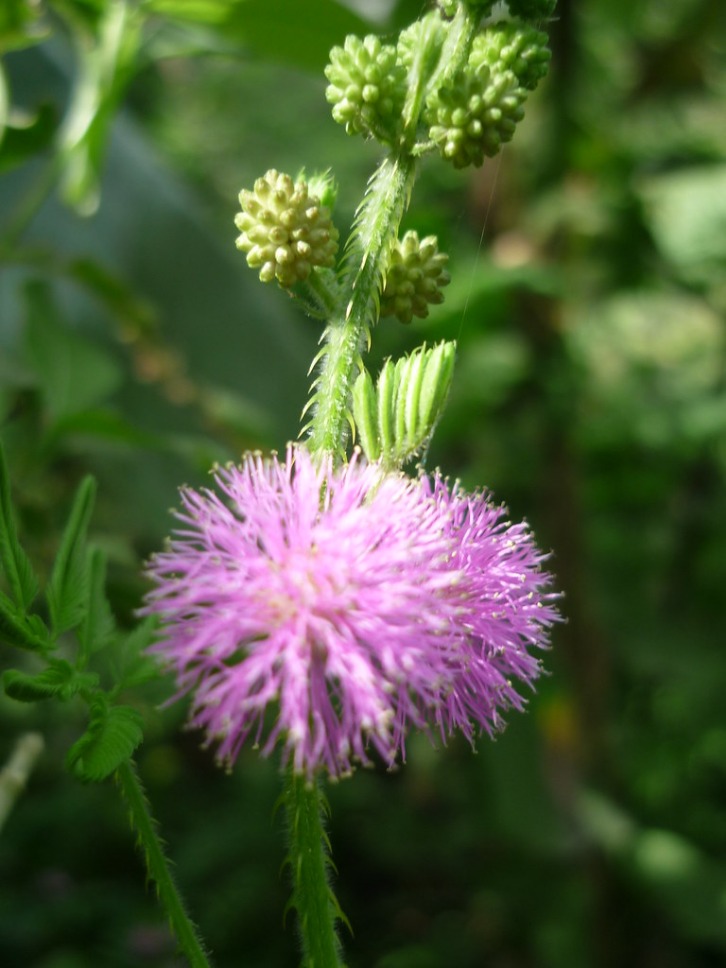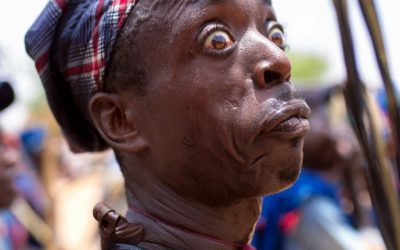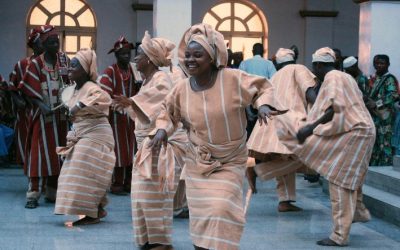Political Landscape in Nigeria
Nigeria’s political landscape is a complex and dynamic arena shaped by a rich history, diverse ethnic groups, and evolving leadership. As Africa’s most populous country, it plays a significant role in regional and continental affairs. The current political environment reflects ongoing efforts toward democratic consolidation, economic development, and addressing pressing social issues. Understanding Nigeria’s political context is essential to grasp the nation’s current stability and future prospects.
Government Structure and Leadership
Nigeria’s political landscape is characterized by its federal republic structure, featuring a diverse and dynamic system of governance. The country operates under a constitution that delineates the separation of powers among the executive, legislature, and judiciary, fostering a framework for democratic governance. Political parties, notably the All Progressives Congress and the People’s Democratic Party, play significant roles in shaping national policies and leadership trajectories.
The government structure in Nigeria consists of the President as the head of state and government, elected through a democratic process. The President is supported by a Vice President and a Cabinet comprising ministers responsible for various ministries. The National Assembly, divided into the Senate and the House of Representatives, serves as the legislative arm, enacting laws and overseeing government activities. Additionally, Nigeria is divided into 36 states and a Federal Capital Territory, each with its own government institutions.
Leadership in Nigeria is often influenced by political, regional, and ethnic considerations, with key positions typically held by prominent political figures. The current administration, led by President Bola Tinubu, focuses on economic reforms, anti-corruption measures, and infrastructural development. Political stability and leadership efficacy remain crucial to Nigeria’s progress amidst ongoing challenges like security issues and economic diversification efforts.
Recent Political Developments
The political landscape in Nigeria is currently marked by significant developments that reflect the country’s ongoing efforts towards democratic consolidation and governance reforms. Recent political activities have included the preparation for upcoming elections, where various political parties are intensively campaigning to secure voter support. Notably, the coalition dynamics among major parties are shifting, influencing the overall balance of power.
In recent weeks, there has been a focus on electoral reforms, with government officials and civil society organizations advocating for transparent and credible voting processes. Additionally, issues such as security challenges, economic policies, and anti-corruption measures continue to dominate political discourse. The ongoing engagement of youth and civil society groups in political dialogue indicates a growing awareness and participation in Nigeria’s democratic process. Overall, the current political scene in Nigeria is characterized by active political competition, reform efforts, and a resilient push towards stability and democratic progress.
Election Processes and Outcomes
The political landscape in Nigeria is characterized by a complex mix of traditional, regional, and emerging political forces that shape the nation’s governance. Nigeria operates a federal system with a multi-party structure, where the major parties include the All Progressives Congress and the People’s Democratic Party. These parties frequently compete in elections that are heavily influenced by ethnic, religious, and socio-economic factors, reflecting the country’s diverse population. Despite efforts to promote democratic stability, issues such as electoral violence, voter suppression, and corruption often challenge the integrity of the electoral process.
Election processes in Nigeria involve a series of national and local elections conducted by the Independent National Electoral Commission. Presidential elections are held every four years, where citizens cast their votes to choose the President and Vice President. Legislative elections follow for the National Assembly, comprising the Senate and House of Representatives. Voting is largely conducted through a mixed system of manual and electronic processes, though concerns about transparency and fairness persist. Over the years, Nigeria has experienced both smooth and contested elections, with some outcomes leading to legal disputes and political unrest.
Recent election outcomes have seen the emergence of new political players and shifts in power, influenced by voter turnout and regional voting patterns. The 2023 elections, for example, resulted in the election of a new president, reflecting changing political dynamics and public demand for reforms. These elections underscore Nigeria’s ongoing efforts to strengthen democratic institutions and promote political stability. Despite challenges, Nigeria continues to work towards enhancing its electoral processes to ensure fair representation and peaceful transitions of power in the current political climate.

Economic Overview
The economic landscape of Nigeria is dynamic and evolving, reflecting both opportunities and challenges in the current global environment. As Africa’s largest economy, Nigeria’s economic activities are deeply rooted in oil and gas, agriculture, and emerging sectors like technology and services. Understanding the present economic overview provides insight into the nation’s potential for growth and development in these unprecedented times.
Current GDP and Economic Growth
Nigeria’s economy is experiencing dynamic changes, reflecting both challenges and opportunities in the current global and regional context. The country’s economic landscape is shaped by diverse sectors including agriculture, industry, and services, which influence its overall growth trajectory.
As of now, Nigeria’s Gross Domestic Product (GDP) is approximately 530 billion USD, making it one of the largest economies in Africa. The nation’s economic growth rate has shown signs of recovery, with recent estimates indicating a growth rate of around 3.2% year-on-year. This positive trend is driven by improvements in oil prices, increased agricultural output, and expanding telecommunications and services sectors.
- Oil remains a crucial component of Nigeria’s economy, but diversification efforts are gradually reducing dependence on the oil sector.
- Non-oil sectors such as agriculture and services are witnessing significant growth and investment.
- Inflation rates have stabilized somewhat, though they still pose a challenge to consumer purchasing power.
- Foreign direct investment (FDI) is gradually increasing as the government implements reforms to improve the business environment.
Overall, Nigeria’s economy is on a path of gradual recovery and growth, supported by both internal reforms and favorable external factors, but continued efforts are essential to achieve sustained economic stability and development.
Major Industries and Sectors
Nigeria’s current economic landscape is characterized by significant potential and ongoing challenges. As one of Africa’s largest economies, it continues to grow, driven by its diverse industries and expanding sectors. The country’s economy relies heavily on oil and gas, which constitute a substantial portion of government revenue and exports. However, there is increasing diversification into other sectors such as agriculture, telecommunications, and services. Major industries include petroleum production, agriculture, manufacturing, and financial services, each playing a crucial role in economic development. The government is also focusing on sectors like technology and entertainment to boost growth and create employment opportunities, reflecting a dynamic economic environment amid global and domestic pressures.
Unemployment and Poverty Rates
As of the current period in Nigeria, the country faces ongoing economic challenges marked by fluctuations in growth and development. The economy is primarily driven by oil revenues, but it continues to diversify efforts to include other sectors such as agriculture and services. Despite these efforts, economic stability remains a concern due to global market dependencies and internal factors.
Unemployment remains a significant issue in Nigeria, with rates fluctuating around high levels. Youth unemployment is particularly alarming, impacting social stability and economic productivity. These high unemployment rates are driven by limited job opportunities, a growing population, and gaps in skills and education.
Poverty rates in Nigeria continue to be alarmingly high, affecting a large proportion of the population. Many Nigerians live below the poverty line, facing challenges related to access to basic services, healthcare, and education. The government and various organizations are working to implement policies aimed at reducing poverty and promoting inclusive growth, but progress is gradual and multifaceted.
Social and Cultural Context
The social and cultural context of Nigeria plays a significant role in shaping the language and communication practices across the country. As one of Africa’s most populous nations, Nigeria is a diverse tapestry of ethnic groups, traditions, and beliefs that influence how people interact and express themselves. Understanding these cultural nuances is essential to appreciate the contemporary language use and social dynamics in Nigeria today.
Population Demographics
The social and cultural context of Nigeria today reflects a diverse and vibrant society marked by rich traditions, ethnic diversity, and dynamic social structures. With over 200 million people, Nigeria is the most populous country in Africa, characterized by a mix of ethnic groups including Hausa, Yoruba, Igbo, and others, each contributing to a multicultural atmosphere. This population demographic influences many aspects of Nigerian life, from language and religion to customs and social norms. Nigeria’s population is predominantly young, with a significant proportion under the age of 30, which fuels a youthful energy and a rapidly growing urbanization trend. The current time in Nigeria sees a nation balancing traditional values with modern developments, shaping its social and cultural landscape in an evolving global context.
Educational and Healthcare Systems
The current time in Nigeria reflects a vibrant and diverse social and cultural environment shaped by its rich history and multifaceted society. Nigeria’s social fabric is characterized by a variety of ethnic groups, languages, and traditions, which influence daily life and community interactions. Educational and healthcare systems in Nigeria are evolving to address the needs of a growing population, facing both challenges and opportunities for improvement.
- Social and Cultural Context:
- Nigeria is known for its diverse ethnic groups, including the Hausa, Yoruba, Igbo, and many others, each with unique languages and customs.
- Traditional festivals, music, dance, and cuisine play a central role in community identity and cohesion.
- Urban areas like Lagos and Abuja are hubs of modernization, while rural communities maintain traditional practices.
- Societal shifts are influenced by globalization, technology, and youth culture, creating a dynamic social landscape.
- Educational System:
- Nigeria’s education system includes primary, secondary, and tertiary levels, with government efforts to increase access and quality.
- Challenges include infrastructure deficits, inadequate funding, and disparities between urban and rural education.
- Recent initiatives aim to improve curriculum relevance, teacher training, and literacy rates.
- Many students pursue education abroad or through online platforms to complement local schooling.
- Healthcare System:
- The healthcare infrastructure ranges from well-equipped urban hospitals to basic rural clinics.
- Common health issues include infectious diseases, maternal health problems, and emerging non-communicable diseases.
- Government programs and international partnerships work to improve access, affordability, and quality of healthcare.
- Challenges persist in medical personnel distribution, funding, and consistent supply of medicines.
Cultural Festivals and Traditions
In Nigeria, social and cultural contexts play a vital role in shaping daily life and community bonds. The country is home to a diverse array of ethnic groups, each with its own unique traditions and customs that influence social interactions and societal norms. Cultural festivals and traditions serve as important occasions for celebrating heritage, strengthening social ties, and passing down customs from generation to generation. Major festivals like the Argungu Fishing Festival, Durbar festivals in the north, and the Osun-Osogbo Festival in the southwest showcase vibrant displays of music, dance, and spiritual rituals. These events not only preserve cultural identity but also attract tourism and foster unity among Nigeria’s diverse population. As Nigeria navigates current times, these festivals continue to be a vital expression of its rich cultural tapestry and social cohesion.
Security and Safety
Security and safety are essential concerns for individuals and communities worldwide, especially during challenging times. Ensuring protection from threats and maintaining a secure environment are vital for peace of mind and social stability. In Nigeria, current conditions highlight the importance of vigilance and effective safety measures to safeguard both citizens and their properties.
National Security Situation
The current security and safety situation in Nigeria remains complex, with ongoing challenges related to insurgency, kidnapping, and communal conflicts. The government continues to implement measures to address these issues, including military operations and community engagement strategies. Nigeria’s national security landscape is influenced by regional conflicts, economic factors, and political stability, which all play a role in shaping the overall safety environment. Ensuring the safety of citizens and maintaining national security necessitates coordinated efforts from government agencies, security forces, and local communities to effectively combat threats and promote peace across the country.
Regional Conflicts and Displacements
The current time in Nigeria situates the country within West Africa, where security and safety remain significant concerns due to ongoing regional conflicts and displacements. Instability caused by insurgent groups, such as Boko Haram, continues to threaten peace in northeastern Nigeria, leading to widespread displacement of communities and humanitarian crises. These conflicts disrupt social cohesion, hinder economic development, and pose challenges to government efforts aimed at restoring stability. Additionally, tension in regions like the Niger Delta and conflicts over land and resources further exacerbate regional insecurity. Addressing these issues requires coordinated efforts involving local communities, national authorities, and international partners to ensure safety, facilitate displaced persons’ return, and promote long-term peace and development in Nigeria.
Government Initiatives on Safety
The current time in Nigeria underscores the importance of robust security and safety measures implemented by the government to protect citizens and maintain order. In recent years, Nigerian authorities have launched various initiatives aimed at enhancing national security, combating threats such as terrorism, kidnapping, and cybercrime. These efforts include the strengthening of military and police forces, technological advancements in surveillance, and community-oriented policing programs. Additionally, the government collaborates with international partners to improve intelligence sharing and implement preventative strategies. Such initiatives are vital to ensuring the safety of residents and fostering a secure environment for economic growth and social stability in Nigeria at this moment.
Environmental and Natural Resources
Environmental and natural resources are essential for sustaining life and supporting economic development worldwide. As Nigeria continues to grow and develop, managing its natural resources responsibly is crucial to ensure a healthy environment and long-term prosperity. Understanding the current state of Nigeria’s natural resources helps highlight the importance of sustainable practices for the country’s future.
Climate and Weather Conditions
The current time in Nigeria is an important factor influencing the environmental and natural resources management within the region. Nigeria experiences a tropical climate characterized by distinct wet and dry seasons, which play a significant role in shaping weather conditions and natural ecosystems. Climate patterns such as high temperatures, seasonal rainfall, and humidity levels affect agriculture, biodiversity, and water resources across the country. As weather conditions fluctuate due to global climate change, Nigeria faces challenges including droughts, flooding, and environmental degradation. Sustainable management of natural resources and adaptation to changing climate conditions are crucial for ensuring environmental stability and resilience for future generations in Nigeria.
Natural Resources and Their Management
Currently, Nigeria is experiencing significant environmental challenges related to the management of its natural resources. The country is endowed with vast natural resources including oil, gas, minerals, forests, and water bodies, which are vital for its economic development. However, improper management and illegal exploitation have led to environmental degradation, deforestation, and pollution. Sustainable management practices are essential to ensure that these resources can support future generations while preserving ecological balance. Efforts such as reforestation, pollution control, and renewable energy initiatives are increasingly being prioritized to address these issues.
Environmental Challenges and Policy Responses
Currently, Nigeria faces numerous environmental and natural resource challenges that impact its economy and public health. Deforestation, soil erosion, and desertification threaten agricultural productivity and biodiversity. Additionally, pollution from industrial activities, oil spills, and improper waste disposal significantly degrade air and water quality. These issues are compounded by climate change, which leads to irregular rainfall patterns and increased flooding, further stressing the environment.
In response to these environmental challenges, Nigeria has implemented various policy measures aimed at conservation and sustainable resource management. The government has enacted laws such as the Environmental Impact Assessment Act and the National Environmental Standards and Regulations Enforcement Agency (NESREA) regulations to control pollution and promote environmental sustainability. Efforts are also underway to promote renewable energy sources, reforestation, and community-based conservation programs. Despite these efforts, ongoing enforcement challenges and limited funding hinder the full realization of conservation objectives.
As Nigeria continues to develop economically, integrating environmental policies with growth strategies remains crucial for ensuring a sustainable future. Public awareness campaigns and international cooperation play vital roles in addressing these challenges, aiming to balance development needs with environmental preservation.





0 Comments